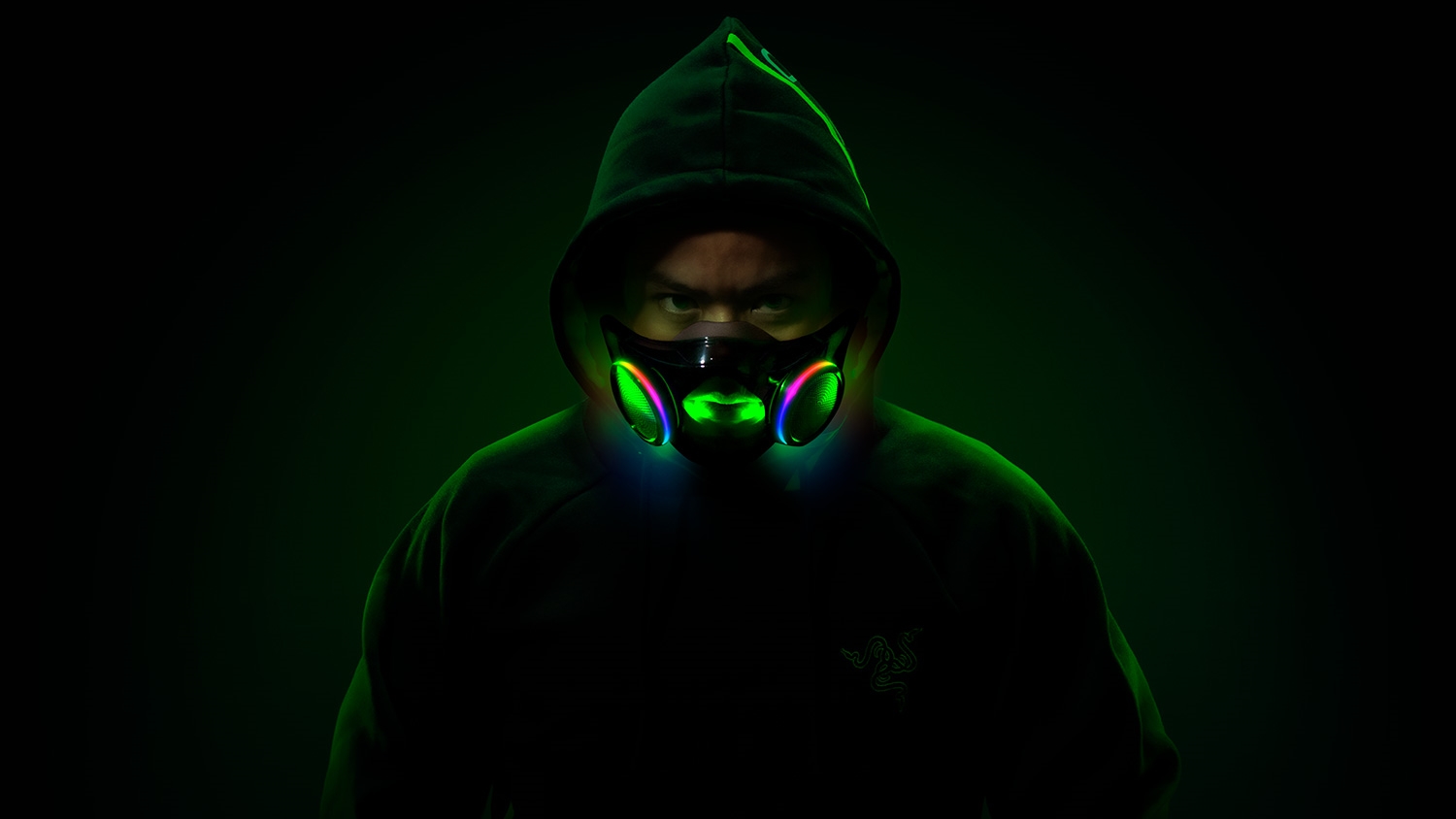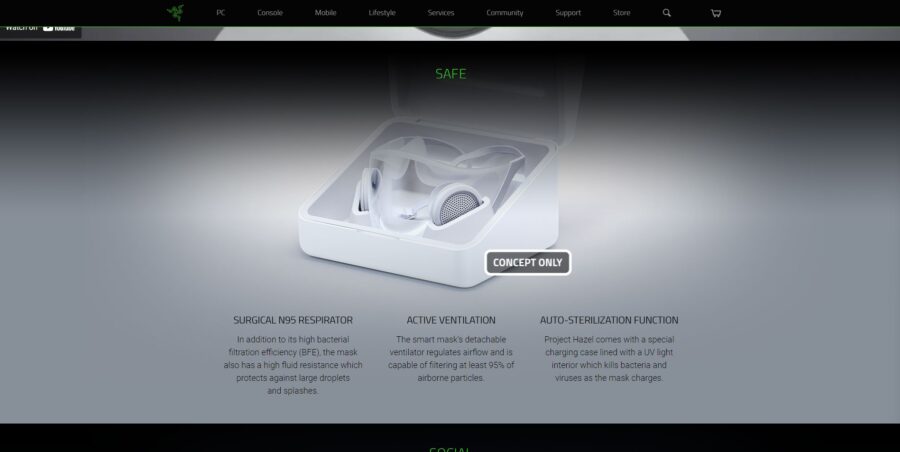There was a lot of hub-bub surrounding Razer’s Project Hazel face mask last year. Initially shown off at CES 2021 as a concept, Project Hazel eventually became the Razer Zephyr mask.
Throughout Project Hazel’s development, Razer claimed that the mask would meet the N95 classification of air filters as seen in the screenshot below.
In Razer’s defense, that image and the URL it is available on, does clearly state that this is a concept, however, Razer has also now started removing mention that its Zephyr mask sports the N95 classification from its marketing material.
The peripheral maker confirmed as much to IGN and added that it was getting in contact with customers to clarify the proprietary filters the mask uses.
While that may be the case, this is a rather slimy practice when you consider the concept page is still live and touts the N95 classification.
This purging of any mention of N95 on the Zephyr product page appears to have been stoked by criticism of the mask online. One of the louder critics has been Naomi Wu who reviewed the mask last year in a very lengthy YouTube video. We recommend watching that video here where Wu shows why the Zephyr isn’t all that good while also offering up advice on how to fix the problems.
While Wu has some issues with the product, she has praised the company for at least trying to make a mask that people want to wear. Unfortunately, it looks like Razer’s marketing team and engineering teams didn’t have clear communication and the result is that the firm has made dangerous claims that aren’t supported by certification.
Yes, Razer has adopted the standards laid out by the The National Institute for Occupational Safety and Health (NIOSH), but adopting those standards and being certified by NIOSH are two entirely different things.
This is quite frankly dishonest behaviour from Razer and we’d argue that it should remove the Zephyr from the market because it was marketed under false claims, which are still online.
Perhaps Razer should just stick to making controllers and other peripherals and leave the biomedical and personal protective equipment to professionals who do their due diligence before throwing claims around.


